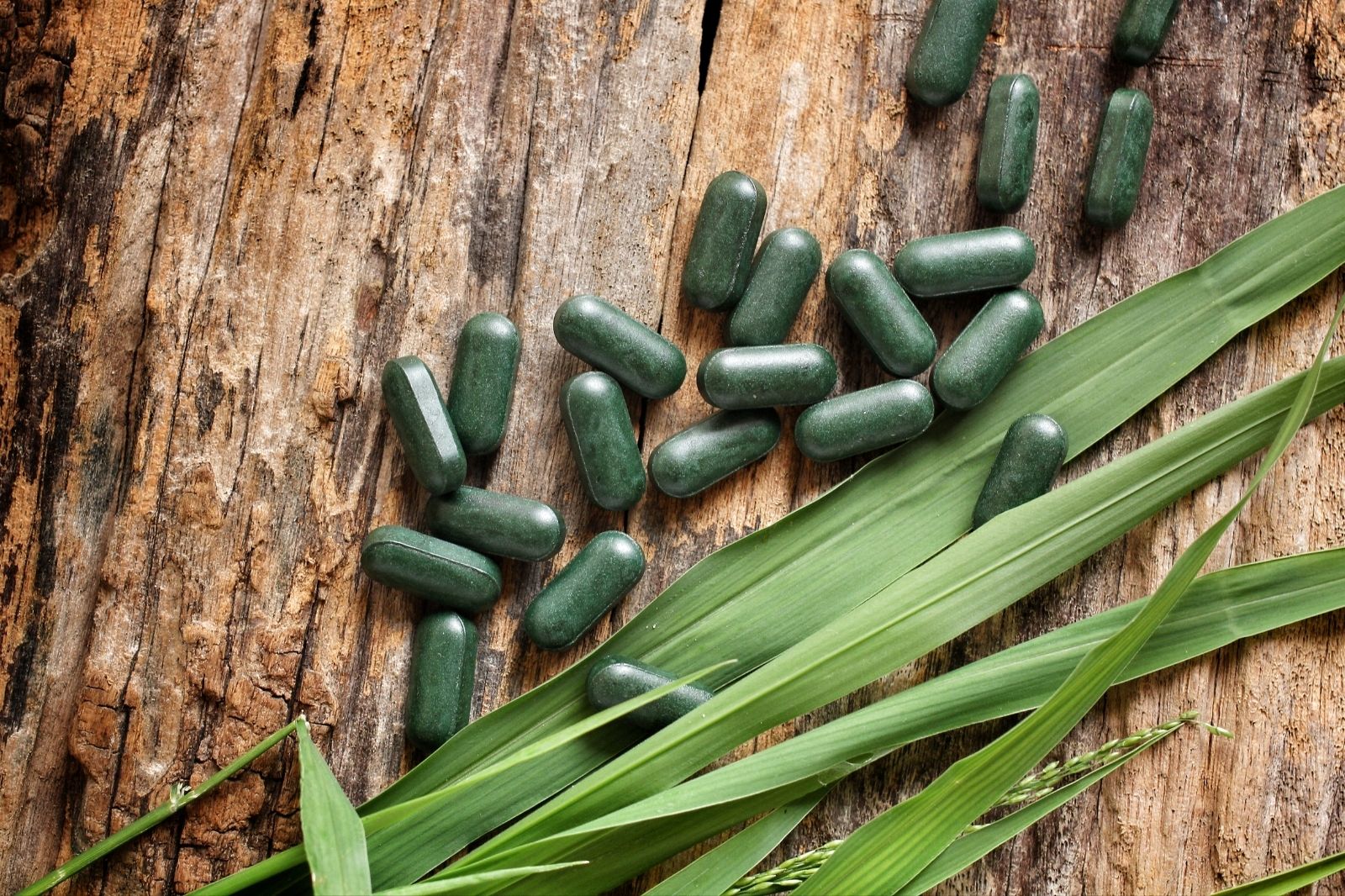Do Chlorophyll Supplements Help with Wrinkles?

In recent years, chlorophyll supplements have gained popularity in the wellness community. It is said that chlorophyll improves skin health and “detoxifies” the body. With its green color and abundance of antioxidants, it’s no surprise that some people have started asking whether chlorophyll can help with wrinkles, a common concern as we age. But does the science back up these claims? Can chlorophyll supplements help reduce wrinkles or prevent premature aging? Let’s take a closer look at the potential benefits of chlorophyll for skin health and its role in reducing wrinkles.
What Is Chlorophyll?
Chlorophyll is the green pigment found in plants that enables them to absorb light and carry out photosynthesis, the process by which plants convert light energy into chemical energy to produce food. Beyond its essential role in nature, chlorophyll has been used for centuries in traditional medicine for its perceived health benefits. In modern wellness circles, it is often consumed as a supplement in liquid or tablet form.
Chlorophyll is rich in antioxidants, vitamins (such as vitamin A, C, E, and K), and essential minerals like magnesium. These nutrients are key players in maintaining skin health, supporting immune function, and protecting cells from oxidative stress. Given its nutritional profile, many people wonder whether chlorophyll can also be beneficial for reducing wrinkles and promoting youthful skin.
How Wrinkles Form and the Role of Antioxidants
Before delving into the potential effects of chlorophyll, it’s important to understand what causes wrinkles in the first place. Wrinkles, fine lines, and sagging skin are primarily caused by the breakdown of collagen and elastin in the skin. This naturally occurs with age. Collagen is the protein that provides structure and firmness to the skin. Elastin, as you may have guessed, helps to maintain elasticity in skin. As we get older, the production of both collagen and elastin decreases, and so we get wrinkles.
In addition to age, environmental factors such as sun exposure, smoking, pollution, and poor diet can accelerate the breakdown of collagen and contribute to premature aging. These environmental stressors generate free radicals: unstable molecules that can damage cells and tissues. This is where antioxidants, such as those found in chlorophyll, may play a role in protecting skin.
Chlorophyll as an Antioxidant
Antioxidants are substances that neutralize free radicals and help protect the body from oxidative stress. By scavenging free radicals, antioxidants can potentially slow down the aging process and protect skin cells from damage. Chlorophyll, being rich in antioxidants like vitamins C and vitamin E, may help defend the skin against the harmful effects of oxidative stress.
Vitamin C in particular plays a crucial role in collagen synthesis. Since chlorophyll contains vitamin C, it’s possible that consuming chlorophyll could support collagen production and help reduce the appearance of wrinkles over time.
Additionally, chlorophyll contains magnesium, which is involved in numerous biochemical processes that affect skin health. Magnesium has been shown to support skin hydration and may help reduce the appearance of fine lines and wrinkles by improving the skin’s overall texture and elasticity.
Chlorophyll’s Role in Detoxification
Chlorophyll is often marketed as a natural detoxifier. The idea behind this is that chlorophyll helps the body eliminate toxins by supporting liver function and improving the detoxification process. While the detoxification claims associated with chlorophyll supplements are still being studied, a cleaner body may result in healthier skin.
The liver plays a crucial role in metabolizing toxins and waste products from the body. By improving liver function, chlorophyll may indirectly support skin health by helping to reduce the build-up of toxins that could contribute to skin aging. However, it’s important to note that more research is needed to confirm the effectiveness of chlorophyll as a detoxifying agent. It’s good to keep in mind that keeping a healthy body is more of a holistic process. Moderate exercise and clean eating, along with beneficial supplements and, in this case, skin care practices, can make a world of difference for the skin aging process.
Chlorophyll for Skin Health: Can It Reduce Wrinkles?
While chlorophyll’s antioxidants and potential detoxifying properties sound promising, there is limited direct evidence to suggest that chlorophyll can significantly prevent aging. Here are some potential ways however chlorophyll might help with wrinkles:
- Anti-inflammatory Effects: Chronic inflammation is linked to the formation of wrinkles. Some studies suggest that chlorophyll may have anti-inflammatory properties which could help protect the skin damage.
- Collagen Support: By providing a source of vitamin C, chlorophyll supplements could indirectly help support collagen production.
- Improved Skin Health: Chlorophyll’s high antioxidant content may help protect skin cells from oxidative stress.
- Detoxification: By supporting the body’s liver function, chlorophyll could help reduce the accumulation of toxins that can negatively affect skin health.
Should You Take Chlorophyll for Wrinkles?
While the idea of using chlorophyll supplements to reduce wrinkles is intriguing, it’s important to approach this with realistic expectations. It is not a miracle solution for wrinkles.
If you’re interested in trying chlorophyll supplements, they can be a valuable addition to a well-balanced diet that already includes plenty of antioxidants, such as those from fruits, vegetables, and other nutrient-dense foods. However, maintaining healthy skin and reducing wrinkles also involves other factors like proper hydration, active lifestyle, genetics, using sunscreen, avoiding smoking, and following a skincare routine that includes moisturization and anti-aging ingredients like retinol or hyaluronic acid.
Conclusion
Adding chlorophyll supplements to your diet can be part of a holistic approach to improve skin health. However, it’s important to remember that no supplement or product can entirely prevent the natural aging process. Wrinkle reduction requires a combination of factors, and chlorophyll alone should not be seen as a quick fix. Always consult with a healthcare professional before adding any new supplement to your routine to ensure it’s safe and effective for your specific needs.